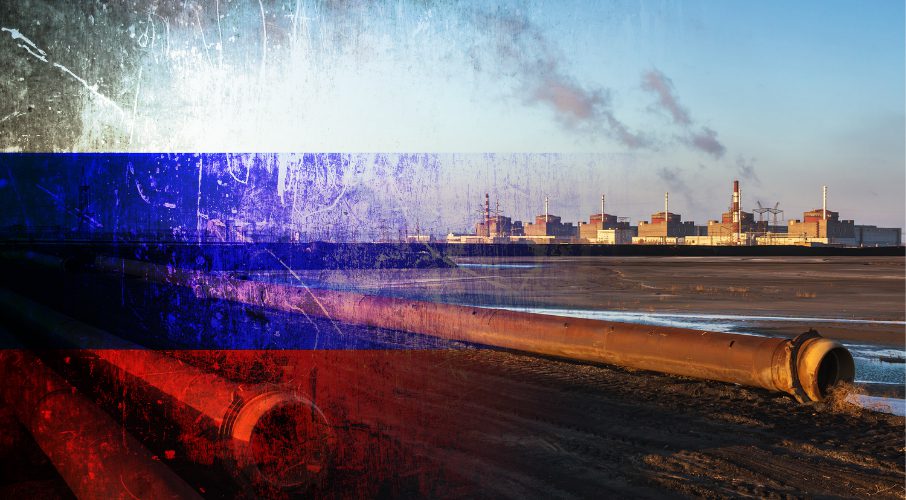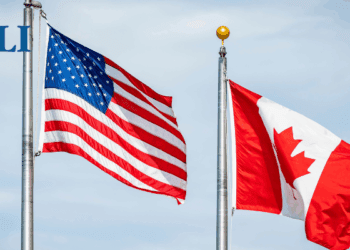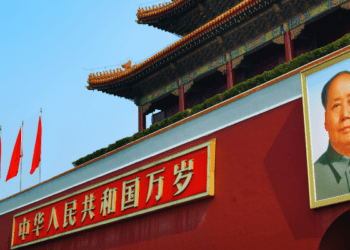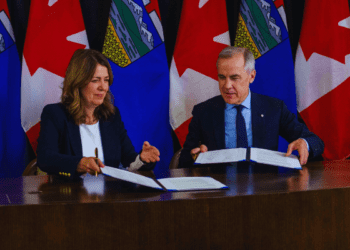
By Eugene Czolij, March 8, 2022
Following a call with the Russian President on 3 March 2022, French President Emmanuel Macron indicated that “the worst is yet to come” and that Putin wanted to take all of Ukraine.
It is difficult to imagine what could be worse than perpetrating war crimes by indiscriminate daily bombardment of Ukraine’s capital and other cities for over a week by the Russian military, killing civilians, including innocent children, and inflicting destruction on Ukrainian civil infrastructure.
However, in the early hours of 4 March 2022, the world was shocked when the Russian military shelled Europe’s largest nuclear power plant, situated in Enerhodar, Zaporizhzhia Oblast in Ukraine. Incredibly, even after fire broke out at a training building for the Zaporizhzhia Nuclear Power Plant, the shelling continued for some time, preventing Ukrainian firemen from extinguishing it. Ukraine’s Minister of Foreign Affairs Dmytro Kuleba warned the international community on Twitter:
“Russian army is firing from all sides upon Zaporizhzhia NPP, the largest nuclear power plant in Europe. Fire has already broke out. If it blows up, it will be 10 times larger than Chornobyl! Russians must IMMEDIATELY cease the fire, allow firefighters, establish a security zone!”
The attack was not an accident, it was a signal, and it is without precedent in history.
The Russians are familiar with that nuclear power plant since it was designed during the Soviet era. Moreover, The Globe and Mail reported that, according to Victor Buchnyev, an adviser to the mayor of Enerhodar, the attack force at the Zaporizhzhia Nuclear Power Plant included representatives from Rosatom, the Russian state atomiс energy corporation. Shelling the site was a particularly reckless act meant to signal that there is no line that Putin will not cross. It constitutes an act of nuclear terrorism.
The High Representative of the EU for Foreign Affairs and Security Policy Josep Borrell Fontelles warned on Twitter that “Shelling & resulting fire at Zaporizhzhia power plant can endanger the whole of Europe.”
At the UN Security Council Emergency Meeting on Ukraine’s Zaporizhzhia Nuclear Power Plant on 4 March 2022, the U.S. Ambassador Linda Thomas-Greenfield made these chilling remarks:
“By the grace of God, the world narrowly averted a nuclear catastrophe last night. We all waited to exhale as we watched the horrific situation unfold in real time. I applaud the ability of the Ukrainian operators to keep all six reactors in safe conditions while under attack and to report, as they were able to, to their nuclear regulator. […]
Russia’s attack last night put Europe’s largest nuclear power plant at grave risk. It was incredibly reckless and dangerous. And it threatened the safety of civilians across Russia, Ukraine, and Europe. […]
The United States remains highly concerned that Russian military forces controlling the Chornobyl site have not permitted operators there to have a shift change since last week. […]
Over the past nine days, we have witnessed the devastating impacts of President Putin’s war of choice on the Ukrainian people. Yesterday, the UN reported that Russia’s invasion had turned half a million children into refugees. Russia has killed thousands of Ukrainians – and sacrificed thousands more Russian soldiers’ lives in the process. Russia is destroying critical infrastructure which is denying people drinking water to stay alive and gas to keep people from freezing to death in the middle of winter.”
By controlling the Chornobyl and Zaporizhzhia nuclear power plants, Putin has succeeded in weaponizing these civilian nuclear plants against the Euro-Atlantic world.
At the NATO Ministers of Foreign Affairs Extraordinary Meeting in Brussels on 4 March 2022, NATO Secretary General Jens Stoltenberg stated:
“we are not part of this conflict, and we have a responsibility to ensure that it does not escalate and spread beyond Ukraine, because that would be even more devastating and more dangerous.”
Set in the context of Putin’s weaponization of civilian nuclear power plants, this statement fails to take into consideration the U.S. argument at the UN Security Council, namely:
“Russia’s attack last night put Europe’s largest nuclear power plant at grave risk. It was incredibly reckless and dangerous. And it threatened the safety of civilians across Russia, Ukraine, and Europe.” The fact that NATO member countries are now directly threatened by Russia’s military aggression contradicts NATO Secretary General Jens Stoltenberg’s assessment that NATO is “not part of this conflict.”
Indeed, radiation does not need a Schengen visa to travel throughout Europe.
Moreover, NATO member countries have already reacted to Putin’s “special military operation”, overtly supplying defensive lethal weapons to Ukraine and imposing severe sanctions against Russia, Putin and Russian oligarchs – clearly acts of aggression in Putin’s eyes.
In order to ensure that Putin’s military aggression against Ukraine actually ends in Ukraine, NATO member countries must assist Ukraine in enforcing a no-fly zone over its airspace, in the event that NATO will not impose one, as Ukraine’s President Volodymyr Zelenskyy has requested, and civil society in the West has actively supported.
This can be accomplished by providing additional defensive lethal weapons to Ukraine, namely fighter jets, helicopters, drones, and effective anti-air defense systems. NATO member countries could also accommodate volunteer pilots to be placed under Ukrainian operational control as part of the International Legion of Territorial Defense of Ukraine for the purpose of securing its airspace and protecting Ukrainian civilian infrastructure.
Russia’s war crimes against Ukrainians, and Putin’s expanding willingness to threaten NATO member countries – now including the risk of radiation leaks and fallout from two nuclear sites – must be stopped without further delay.
NATO member countries need to defend themselves immediately from Putin’s escalating and overt threats to their individual and collective security.
Eugene Czolij is president of the Ukraine-2050 nongovernmental organization and served as president of the Ukrainian World Congress from 2008-2018. Ukraine-2050 was established to help implement within one generation – by 2050 – strategies for the sustainable development of Ukraine as a fully independent, territorially integral, democratic, reformed and economically competitive European state.




